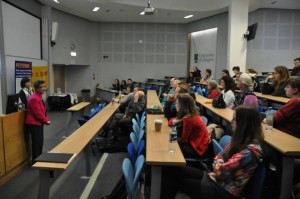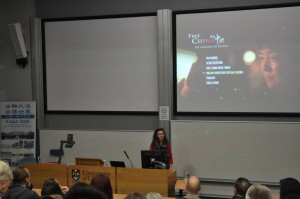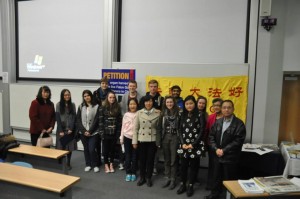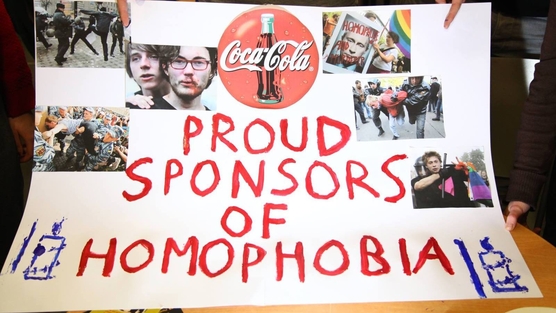Update: Call For a Conflict-Free Glasgow
On Friday 14th, four of us from the committee attended a meeting with David Newall, Secretary of Court for the University, and Jo Gallagher, Head of Procurement. As Ruth has pointed out it was frustratingly similar to the meeting she had with him on the subject this time last year. I took notes throughout the meeting and thought it would be worth updating you all on what happened. From here we can plan our next steps so that the new committee can continue the fight into the next academic year.
Unfortunately it seemed that Gallagher had not been fully briefed on the campaign at hand; not realising that it only focussed on the procurement of technology. She emphasised that the university does not take full responsibility for the sourcing of materials. Instead this goes through a framework of guidelines decided by the umbrella group APUC. This is governed by EU regulations. She said that she would enquire whether the APUC currently have a system of due diligence and corporate responsibility.
Newall’s two issues seemed to be as follows: that the university must not discriminate unfairly against companies or breach contractual obligations in its procurement policy; and that the university cannot make political statements as an institution. His excuse for unresponsiveness was that conflict minerals are “not important enough” from the university’s perspective.
He justified the political undertones of GU’s divestment from the tobacco industry by saying that it should promote healthy living and that extensive research here goes into the prevention of cancer. This is indisputable. More closely linked to CFCI is the movement calling for the divestment of fossil fuels. The issue is yet to be brought to university court. It struck us that this campaign is being viewed in terms of ethical and sustainable development – as should CFCI. (Personally I find it difficult to see why the university is comfortable to tacitly support genocide via its consumerism, but uncomfortable with making a political statement against it.)
Both Newall and Gallagher iterated implicitly that a top-down approach is the only way to push the university towards change. Clearly they feel out of their depth discussing Congo. It is understandable to want to avoid making bold statements which they are unable to follow up with action. However, Ruth requested that Newall send on an official response explaining why the university is not participating in the movement.
We discussed the progress that support for Congo has made worldwide in the last year. More companies, including Apple, are investigating their supply chains and recognising the conflict. The EU will vote on bringing in guidance for responsible companies relating to conflict minerals later this year*. The success that certain campuses in the USA have seen was mentioned, but dismissed as being allowed under very different systems of policy and procurement.
To close the meeting Ruth handed over the petition, which has been circulated on campus and collected over 400 signatures.
Newall pushed the importance of the SRC’s support as he thinks that having the issue taken to court is the first feasible step. Since the meeting we have discovered that the motion which was sent to the SRC was not in fact passed, as we had believed. This accounts for the lack of movement from them and will hopefully be rectified soon.
Breffni O’Connor, the new SRC president, is enthusiastic to help us get the motion passed at the next council meeting in April. In an email she said: “[The meeting] is also the last of the year. So it will need to be passed at this one. I think the best way to do it is to send us the motion but also to prepare a presentation to our council. It was done this was by Climate Action and I think it went down a lot better, if there’s no presentation people might not concentrate in full. And our council will fire you lots of questions, these discussions usually last a while.”
There is also talk of forming an inter-society coalition. This has been very effective for other events and campaigns, such as the Coalition for Syrian Refugees which Amnesty took part in earlier this year. Many NGOs and charities on campus are likely to be interested in supporting us. This will hopefully start up in the next academic year, as at the moment many societies are having AGMs and changing their committees. The increase in exposure that CFCI would get from broadening its audience in Glasgow is vital to progress.
To sign the petition, or read the motion in full, click here: www.guamnesty.org.uk/2013/02/petition-for-a-conflict-free-glasgow/
If you missed my last blog summarising the campaign, read it here: http://www.guamnesty.org.uk/2014/02/call-for-a-conflict-free-glasgow/
*Draft legislation proposed by the European Commission on 5th March 2014Â http://trade.ec.europa.eu/doclib/docs/2014/march/tradoc_152227.pdf



